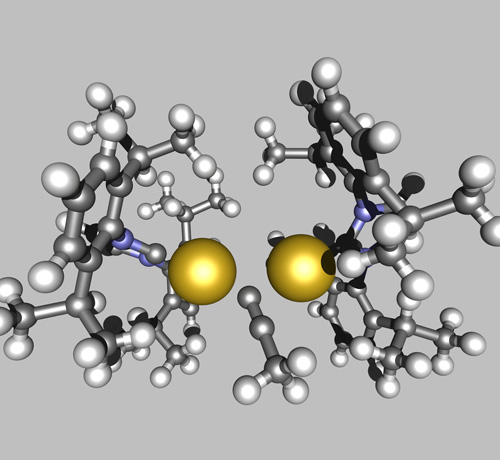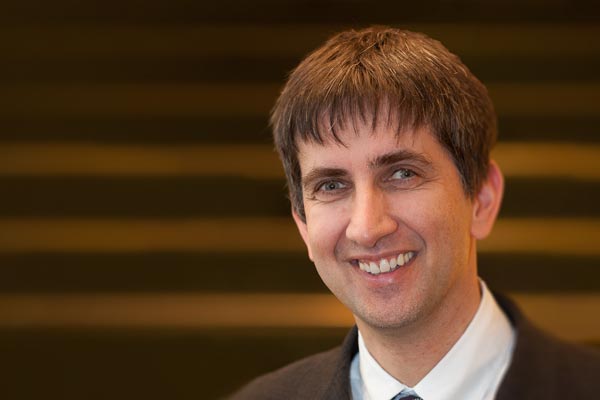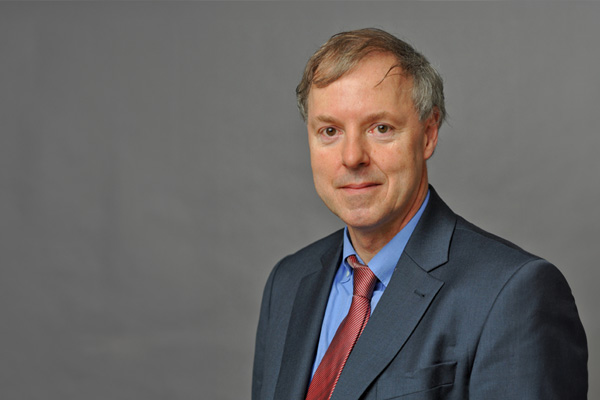Grundlagen der Goldkatalyse
Dr. Sarah Bay – Hector Fellow A. Stephen K. Hashmi
Dr. Jean-Francois Greisch – Hector Fellow Manfred Kappes
In diesem Projekt ging es um die Eigenschaften innovativer Goldkatalysatoren. Das Ziel war es, neue Informationen über die Mechanismen und Arten zu erhalten, die in Goldkatalyse-Reaktionen involviert sind. Es handelte sich dabei um eine Kooperation der Hector Fellows A. Stephen K. Hashmi und Manfred Kappes sowie den HFA Postdoktorand*innen Dr. Sarah Bay (Ruprecht-Karls-Universität Heidelberg) und Dr. Jean-Francois Greisch (Karlsruher Institut für Technologie).
Following the development of new highly active catalyst systems, it was shown that homogeneous gold catalysis might be well-suited for industrial application and economically efficient use. To achieve this goal a fundamental understanding of highly reactive gold catalyst systems is neccessary. Within this project, the researchers wanted to determine the structures and reaction pathways of selected gold catalysts. Their studies aimed at characterizing reaction intermediates by combining organic synthetic strategies with elaborated mass spectrometric methods.
The figure shows the workhorse, a dual activation catalyst. Direct activity assessment including the influence of byproducts (e.g. small clusters of various charge states) as well as the identification of reaction intermediates has been missing, which finally prevented efficient optimization. Since concentrations of the new highly active gold catalysts are typically low and the active species are fragile, characterization using analytic techniques is challenging.
Nevertheless, the combination of high-resolution mass spectrometry and mild ionization methods provided a unique opportunity to directly probe catalyst-substrate-intermediates using a broad range of spectroscopic techniques.
Via ion mobility measurements, collision cross-sections could be inferred and structural information on the isolated intermediates of reactions obtained. Reaction of gas-phase species with vapors could provide unique information on the reactivity, making it possible to assess how different isomers/conformers contribute to the reaction. Finally, optical spectroscopic techniques could be used to probe the structure and the electronic states as well as to isolate species for further investigation via hole-burning spectroscopy.
By analyzing the reaction mixture and developing new approaches to accessing transient species, the project aimed at obtaining unprecedented information on the mechanisms and species involved in gold-catalyzed reactions.

Dual activation catalyst
Dr. Sarah Bay
PostdoktorandinDr. Jean-Francois Greisch
PostdoktorandBetreut durch

A. Stephen K. Hashmi
ChemieHector Fellow seit 2010

Manfred Kappes
Chemie & PhysikHector Fellow seit 2009


